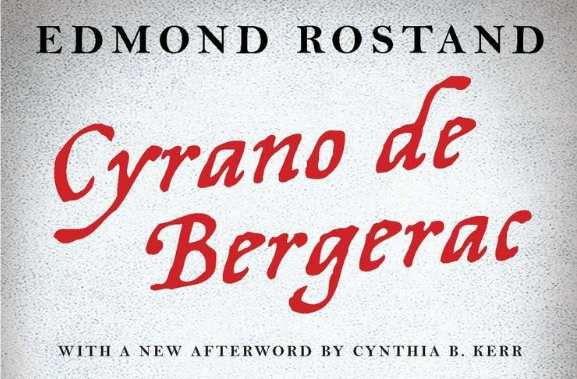Scene 3. X.
byScene 3. X. begins with a moment of subtle suspense, as Cyrano casually approaches and initiates conversation, pretending to stumble upon Christian by chance. Christian, startled but playing along, acknowledges him, and soon Roxane joins the moment with warm familiarity. Her presence feels gentle yet pivotal, foreshadowing the emotional undercurrents that are about to surface in this finely staged encounter.
When Roxane steps inside momentarily, the tone shifts with the unexpected arrival of a friar who mispronounces her name. Cyrano’s amusement at this error momentarily lightens the tension, showcasing his characteristic wit even as he processes the friar’s message. This seemingly small interruption sets the wheels in motion for a dramatic shift in the scene, as the friar believes he has arrived with divine news, when in fact, he’s about to unknowingly deliver a message steeped in romantic manipulation.
As Christian and Ragueneau rejoin Roxane outside, the friar delivers a sealed letter with reverence, convinced of its pious nature. What unfolds next strikes a stark contrast to the friar’s naive demeanor—the letter is from De Guiche, revealing not a holy mission, but a self-serving plan to visit Roxane in secrecy. He writes of lingering passion and intent to hide within the convent’s walls, hoping for one final, private meeting, bypassing both honor and protocol.
This bold move by De Guiche demonstrates his willingness to break decorum and act on impulse, disguising obsession as love. His use of the friar as a messenger is both manipulative and revealing—he exploits trust in religious authority to disguise selfish motives. This misuse of spiritual channels underscores the lengths to which De Guiche is willing to go, blending false virtue with strategic deception.
Scene 3. X. reveals not only De Guiche’s audacity but also the layered intelligence of the surrounding characters, particularly Cyrano. Upon reading the letter, Cyrano immediately senses an opportunity to intervene, understanding both the danger and absurdity of De Guiche’s plan. Rather than alerting the friar or causing alarm, Cyrano redirects the moment with poise, determined to shield Roxane without disrupting the unfolding events too abruptly.
For modern readers, the dynamic also speaks volumes about how people manipulate systems of power—religious, romantic, or social—to suit personal ambitions. This scene reflects an age-old truth: those in power often disguise pursuit of self-interest under noble causes, a theme as relevant today as it was in Rostand’s time. The friar’s innocence serves as a moral mirror, showing how sincerity can be misused when paired with unchecked authority and cunning ambition.
Roxane, for her part, quickly deciphers the letter’s true intent and reacts not with fear, but with clear disdain for De Guiche’s forwardness. Her intelligence shines through as she remains composed, refusing to give in to unwanted affection. This paints her not as a passive love interest, but a perceptive and emotionally self-aware woman, confident in drawing lines even in the face of bold advances.
What makes this portion of the play so powerful is its careful balance between comedy and tension. Ragueneau’s presence offers brief moments of levity, but each gesture, each expression carries layered meaning—something Rostand masterfully builds into every character’s interaction. The audience is pulled between laughter and anticipation, aware that beneath every word lies an unspoken motive.
In literary terms, this scene works as a turning point. The plot tightens, character motives become clearer, and deception escalates into open conflict. Cyrano’s quick thinking continues to drive the action forward, setting the stage for later sacrifices and revelations that will test love, loyalty, and courage under pressure.
This chapter also reinforces how setting can become part of the emotional scaffolding—using the convent, a place of peace, as a backdrop for personal schemes only intensifies the drama. It contrasts sacred intention with carnal desire, making De Guiche’s pursuit appear even more inappropriate. The subtle irony enriches the moment, offering both critical commentary and character depth without slowing the pace.
Cyrano’s restrained reaction to the situation also demonstrates his growing burden. He’s constantly navigating between protecting Roxane, helping Christian, and hiding his own love—all while keeping his dignity intact. This makes the audience sympathize with him more, as he continues to use intellect rather than confrontation to influence outcomes.
Scene 3. X. serves as a microcosm of the play’s major themes: miscommunication, unrequited love, the exploitation of trust, and the line between appearance and reality. Through masterful dialogue and clever pacing, the audience is led to question motives, anticipate conflict, and root for Cyrano’s quiet resilience. It is a fine example of dramatic irony—where the characters move unknowingly under the influence of secrets that the audience is allowed to see.


